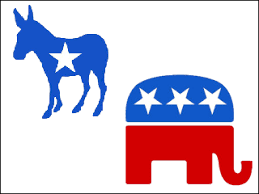 Putting this together obviously took a tremendous amount of work (and ability) and I can only say "thank you, Ben" for doing it. Also, "great job;" as much as I agree with my friend Chap Petersen that "We need daily reporters," I don't think I've ever seen them do something like this for the Virginia General Assembly. Once again, it looks like citizen journalists can do great work; the main problem is that the vast majority of them only do this part time (for no $$$), and very few have the time (or skillset) to put together something like this.
Putting this together obviously took a tremendous amount of work (and ability) and I can only say "thank you, Ben" for doing it. Also, "great job;" as much as I agree with my friend Chap Petersen that "We need daily reporters," I don't think I've ever seen them do something like this for the Virginia General Assembly. Once again, it looks like citizen journalists can do great work; the main problem is that the vast majority of them only do this part time (for no $$$), and very few have the time (or skillset) to put together something like this. I've been working on this for a couple of weeks. I went through every bill that was on the Senate floor before crossover (i.e. bills introduced by a fellow Senator). For each vote that had a majority of the Democratic Caucus on one side, and a majority of the Republican Caucus on the opposing side, I scored Senators based on whether they voted with a majority of their party, or with a majority of the other party. This happened 55 times.Three things jump right out at me from Ben's "partisan index" (which, by the way, covers Senate floor votes this year prior to "crossover").
1. Senate Democrats overall were actually a bit more "partisan" than Senate Republicans, with just two Dem's - Chap Petersen (80%-20% "partisan Democratic") and Roscoe Reynolds (78%-22%) - voting with Republicans 20% of the time or more.
2. In contrast, NINE Republicans - Harry Blevins (53%-47% "partisan Republican"), Fred Quayle- 55%-45%), Jill Holtzman Vogel (56%-44%), Ken Stolle (57%-43%), Richard Stuart (58%-42%), Tommy Norment (60%-40%), John Watkins (63%-37%), Walter Stosch (73%-27%), Frank Wagner (75%-25%) - out of nineteen voted with Democrats at least 20% of the time, with six Republicans voting 40% or more of the time with the "blue team." Looks like we may have a few "Russ Potts/John Chichester Republicans" in the State Senate (the House is another story altogether...), which I'd be happy to see if it holds up.
3. One Senator, Ken Cuccinelli, jumps out at me as wildly out of step with his district. "Cooch" was highly partisan (at least on floor votes, pre-"crossover"), voting 95% with Republicans, despite the fact that his district is increasingly Democratic (he only retained his seat by 92 votes last time around). No wonder why Cooch is running for statewide office.
I'd be very interested to see how the Senators voted after "crossover" and whether their voting pattern changed. I'd also love to know - but this would be a huge amount of work - how they voted in committee and what they took leadership roles on. And, of course, I'd love to see all of this done for the House of Delegates. Besides that, my only wishes are world peace, a booming economy, a magic cure for climate change, a cure for cancer... :)

